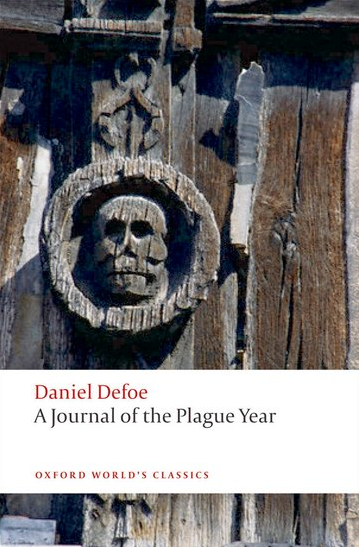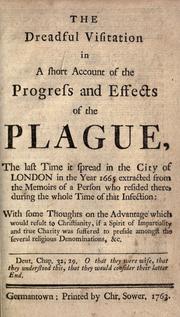

H.F.'s narrative is rambling, digressive, and oftentimes contradictory, and he returns to several subjects over and over again – particularly the shutting up of houses and his conviction that the only way to survive the plague is to run away from it.

He relates many stories of mercy, charity, and redemption. is keen to debunk rumors that all was chaos in the city during the plague he is sympathetic to the plight of the poor and refuses to believe the sordid rumors that surround the days of plague. These stories include tales of grieving fathers, crazed men running through the streets, people throwing themselves into burial pits due to pain or grief, husbands trying to support their families, people blaspheming the name of God, houses being looted, and people trying to escape the city and travel to other towns in search of reprieve. tells many stories of how the people of London were affected by the plague. is generally against the shutting up of houses, commenting that it seemed to do more harm than good in most cases and could barely prevent the plague from spreading because Londoners found ways to escape or delude city officials. These set up rules and regulations for the appointment of searchers and examiners and watchmen to guard the houses, for the shutting up of infected houses, and for the shutting down of events in which large groups of people would congregate. He relates how they succumbed to the wiles of quack doctors, fortunetellers, mountebanks, and astrologers in their fear and anxiety of the imminent plague.Ĭity officials are rational and organized concerning the spreading plague, and publish the Orders of the Lord Mayor and Aldermen of the City of London. observes that the rich are leaving the city and the poor are being strongly affected by the distemper. After some debate back and forth, he decides that God wants him to remain. starts to wonder whether or not he should leave the city. However, in May and June the numbers of dead begin to swing upwards and H.F. Certain parishes are affected, but cold weather seems to stave off the worst of the plague during the winter. begins by relating rumors that the plague had come to Holland, and closely follows the bills of mortality. The Journal is a tale of his experiences during the plague that afflicted London in 1665 the work is thus fiction but is peppered with statistics, data, charts, and government documents. Daniel Defoe's A Journal of the Plague Year is a first-person, mostly nonlinear narrative told by protagonist H.F., an unmarried saddler whose name is only revealed by his signature at the end of the work.


 0 kommentar(er)
0 kommentar(er)
